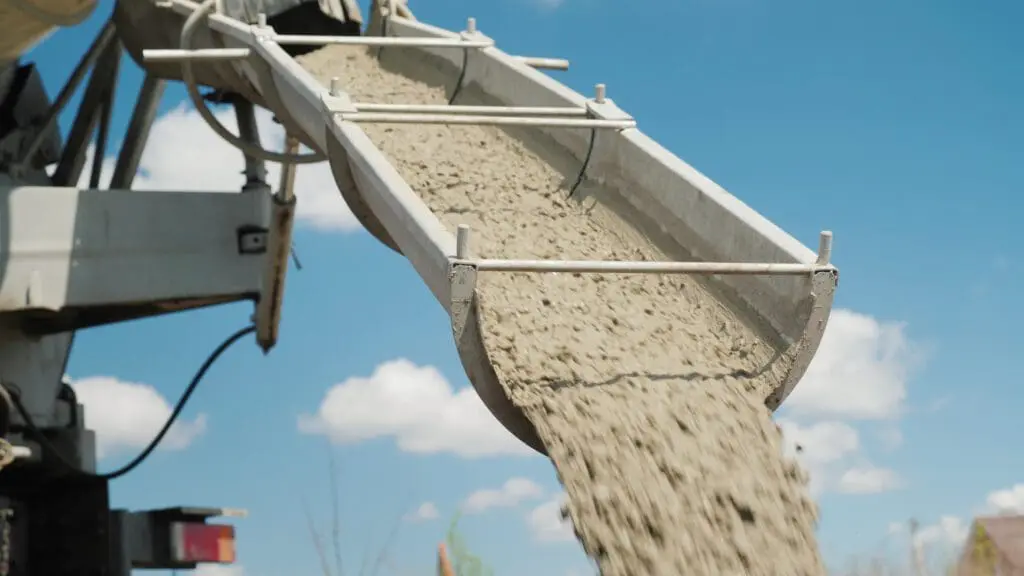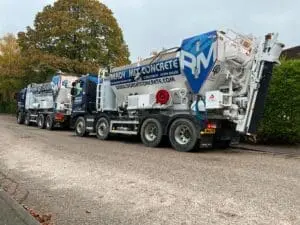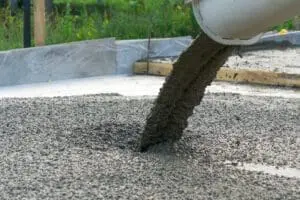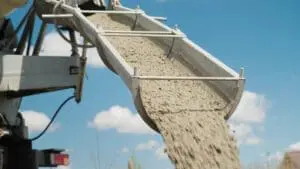Concrete is known for being one of the most durable construction materials, however different types of concrete will have different compressive properties and qualities, and they will be used for different usage. When it comes to the durability of concrete, depending on the situation, it will need to adhere to certain security codes and safety regulations.
Here we take a look at the strength and durability of concrete in more detail:
As professional concrete suppliers, we are highly experienced and knowledgeable in all things concrete. The strength of concrete will depend on several factors, this includes the type of cement used, as well as the water-to-cement ratio, the type and size of aggregates, and the curing conditions.
The Strengths of Different Concrete:
- Normal Concrete: 2500 – 5,000 psi (Pounds Per Square Inch)
- High-Strenght Concrete: 6,000+ psi
- Ultra-High Performance Concrete (UHPC): 18,000 – 35,000 psi
- Self-Consolidating Concrete (SCC): 4,000 – 6,000 psi
- Lightweight Concrete: Around 2,465 psi
- High-Density Concrete: 3,000 – 6,000 psi
- Ready-Mix Concrete (RMC):(M20) 2,900 – (M40) ~5,800 psi
- Precast Concrete: 3,000 – 6,000 psi
- Reinforced Concrete: 3,000 – 6,000 psi
- Shotcrete (Sprayed Concrete): 4,000 psi

What can affect concrete strength?
Several factors can affect the strength of concrete, including:
Water-to-cement ratio: The amount of water used in the mix can significantly impact the strength of the concrete. Using too much water can result in weaker concrete while using too little water can cause the concrete to be too dry and difficult to work with.
Curing conditions: Proper curing is crucial for the development of concrete strength. Insufficient curing can result in reduced strength and decreased durability.
Aggregate size and type: The size and type of aggregates used in the mix can affect the strength of the concrete. Larger aggregate sizes can result in weaker concrete while using high-quality aggregates can improve the strength and durability of the concrete.
Type of cement: The type of cement used in the mix can impact the strength of the concrete. Different types of cement have varying strength characteristics and may react differently with other ingredients in the mix.
Mixing and placement techniques: Proper mixing and placement techniques are important for ensuring the uniform distribution of ingredients and the proper curing of the concrete. Poor mixing or placement techniques can result in reduced strength and decreased durability.
Age: The strength of concrete increases over time as it continues to cure and harden. The strength of concrete can be affected by the time between mixing and placement, as well as the conditions during curing.
For Strong, Durable Concrete, Contact Ready 2 Mix Ltd
For strong and durable concrete, here at Ready 2 Mix Ltd, we provide premium concrete. We offer concrete for all types of construction projects, whether you are creating a stunning home or a business structure. We take great delight in offering a wide range of concrete strengths and grades at incredibly low costs, just call our team today. Based in Dorset we cover the surrounding areas including Verwood, Fordingbridge, Bournemouth, Poole, Ferndown, Christchurch and Blandford.




